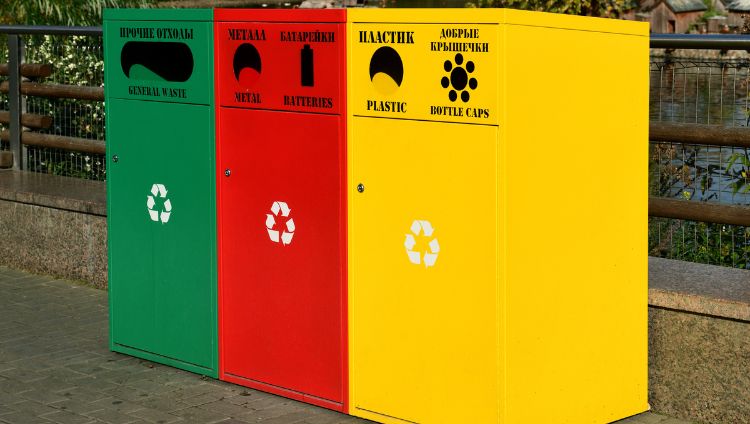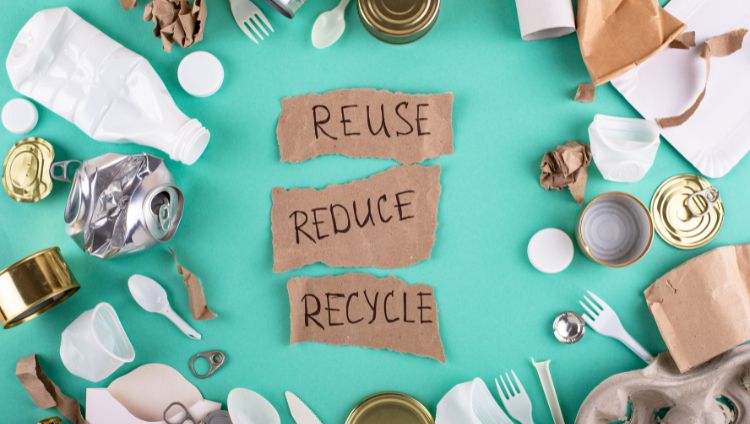Control the spread of diseases resulting from unhygienic waste management practices is of utmost importance for public health and environmental sustainability.
Poor waste management can lead to the proliferation of disease-causing pathogens, contaminating water sources, air, and soil, and posing significant health risks.
To address this issue, a combination of preventive measures, awareness campaigns, and regulatory actions are necessary.
Here is a detailed content on the What measures can be taken to control the spread of diseases resulting from unhygienic waste management practices?.
Promote Waste Segregation
By adopting waste segregation, you can categorize your daily garbage into specific types, which helps create a cleaner environment. For example, set up separate bins for food waste, recyclables like paper and plastic, and hazardous materials.
This simple practice improves waste management efficiency and contributes to environmental preservation. It streamlines waste handling, making the process easier and more effective, while supporting a greener and healthier community.
Learn more about how to handle waste segregation effectively.

Improve Collection and Transportation
Regular collection and transportation of waste from homes and businesses are crucial. Ensure that garbage trucks use covered containers to prevent waste from spilling and potentially spreading diseases. Discover how to schedule regular dumpster pickups.
Establish Sanitary Landfills
Sanitary landfills are designated areas for safely disposing of non-recyclable and non-compostable waste. These landfills must be equipped with protective liners to prevent harmful substances from contaminating the soil and groundwater. Check out how to properly dispose of hazardous waste.
Promote Recycling and Reuse
Recycling transforms materials like paper, glass, and plastic into new products instead of throwing them away, helping to decrease the amount of waste sent to landfills. Reusing items like glass jars or cloth bags also supports waste reduction efforts. Read about reducing food waste in households and restaurants.

Implement Composting Programs
Composting is a highly effective way to manage organic waste like food scraps and yard trimmings. It reduces waste while creating nutrient-rich, natural fertilizer. Moreover, proper composting helps eliminate harmful pathogens that can cause diseases. Learn how to implement composting at home.

Educate and Raise Awareness
Educational campaigns teach people about the right way to dispose of waste and why it’s important. These efforts also make people aware of the dangers of leaving garbage out in the open or littering. Explore strategies for promoting waste reduction in schools.
Enforce Regulations
Rules and laws about waste management need to be enforced. This means holding individuals and companies accountable for proper waste disposal and imposing penalties on those who break the rules. Learn more about waste management regulations.
Promote Safe Needle Disposal
Used needles and other medical waste can be very dangerous. Special programs should be put in place to safely dispose of these items to prevent the spread of infectious diseases. Check out guidelines for disposing of medical waste.
Control Pollution
Waste can pollute the air and water. To prevent this, we need to put measures in place to control pollution around waste disposal sites. This keeps diseases from spreading through the environment. Read more about how waste management affects the environment.

Monitor and Inspect Facilities
Regular checks and inspections of waste management facilities are essential. They ensure that best practices are being followed and that any issues are identified and addressed promptly.
Learn how to monitor and improve waste management in cities.
Encourage Public Participation
Getting communities involved in waste management is a great idea. People can help clean up their neighborhoods and take part in recycling programs. When everyone works together, it makes a big difference. Explore how communities can better manage organic waste.
Invest in Technology
Modern tech helps handle waste better. Machines turn trash into power, and smart bins know when to collect.
Develop Emergency Response Plans
Mishaps occur, like spills or fires. Plans help manage these fast to stop diseases from spreading.
Frequently Asked Question
What is the connection between unhygienic waste management and the spread of diseases?
Inadequate waste management practices may result in waste buildup in open spaces, attracting disease-carrying pests such as rats and flies. These pests have the potential to transmit diseases to humans through direct contact or by contaminating food and water sources.
How can waste segregation help prevent disease spread?
Waste segregation involves separating waste into different categories. It helps by reducing the volume of waste going to landfills and allows for proper disposal of hazardous waste, which can contain harmful pathogens.
What can individuals do to promote proper waste management at home?
Individuals can start by segregating their waste, recycling materials when possible, and ensuring that garbage bins have lids to prevent pests from accessing the waste. Additionally, they should be aware of local waste disposal regulations and comply with them.
Why is it essential to enforce waste management regulations?
Enforcing regulations ensures that individuals and businesses adhere to proper waste disposal practices, reducing the risk of disease transmission. Penalties for non-compliance act as a deterrent, encouraging responsible waste management.
How does composting reduce the spread of diseases through waste?
Composting organic waste helps break down pathogens and creates nutrient-rich compost that can be safely used in gardening. This reduces the chances of diseases spreading from organic waste materials.
Are there specific guidelines for disposing of hazardous waste, like chemicals and medical waste?
Yes, there are specific guidelines for disposing of hazardous waste. Chemicals and medical waste should be handled and disposed of following strict protocols to prevent contamination and the spread of diseases. Many communities have dedicated programs for their safe disposal.
How does raising public awareness impact the control of disease transmission through waste management?
Enhancing public awareness is pivotal in informing individuals about the hazards associated with inadequate waste management and the advantages of adopting responsible practices. This heightened awareness motivates people to engage in activities like clean-up drives, recycling programs, and other initiatives aimed at fostering a cleaner environment.
In what ways can technology enhance waste management and contribute to disease prevention?
Innovative waste management technologies, such as waste-to-energy systems, play a role in diminishing waste volume while generating valuable energy resources. Additionally, the deployment of smart waste bins optimizes waste collection routes, increasing operational efficiency and minimizing the risk of exposure to diseases associated with improper waste management.
Conclusion:
Effective waste management involves more than just disposing of waste; it includes protecting public health and preserving the environment.
By practicing waste separation, recycling, following regulations, and promoting awareness within our communities, we can reduce health risks and contribute to a cleaner, more sustainable planet.
Every person’s dedication to responsible waste management is essential for achieving this goal.


